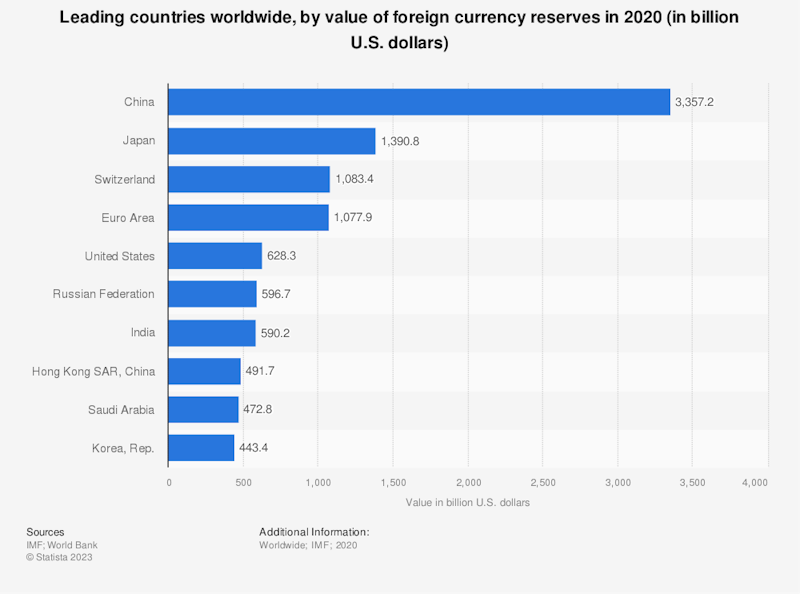Study Notes
What are foreign currency reserves and why do countries hold them?
- Level:
- A-Level, IB
- Board:
- AQA, Edexcel, OCR, IB, Eduqas, WJEC
Last updated 29 Aug 2023
Foreign currency reserves, often referred to as foreign exchange reserves or forex reserves, are a collection of foreign currencies and other assets held by a country's central bank or monetary authority. These reserves are used to facilitate international transactions, maintain stability in the domestic currency, and manage various economic challenges. Foreign currency reserves typically include major global currencies like the US dollar, Euro, Japanese yen, and British pound, among others.

Countries hold foreign currency reserves for several reasons:
- International Trade and Payments: Reserves are used to settle international trade and payments. When a country imports goods or services, it needs to pay in foreign currencies. Reserves provide the necessary funds to fulfill these obligations without putting excessive pressure on the domestic currency's value.
- Exchange Rate Stability: Reserves can be used to intervene in the foreign exchange market to stabilize the value of the domestic currency. If the domestic currency is depreciating rapidly, the central bank can sell foreign currency from its reserves to buy back the domestic currency, which helps prevent excessive volatility and sharp declines in the currency's value.
- External Debt Servicing: Many countries have external debt denominated in foreign currencies. Reserves can be used to make interest payments and principal repayments on these debts, ensuring that the country does not default on its obligations.
- Financial Crises: During times of financial crises or economic turmoil, foreign currency reserves provide a cushion that helps a country withstand external shocks. These reserves can be used to stabilize the financial system, maintain confidence, and prevent abrupt currency collapses.
- Speculative Attacks: Countries may hold reserves to defend against speculative attacks on their currency. Speculators may attempt to weaken a currency by selling it in large volumes, hoping to profit from its decline. Reserves can be used to counteract these attacks and deter such behavior.
- Investment Opportunities: Some countries invest a portion of their foreign currency reserves in safe and liquid assets denominated in foreign currencies. These investments can generate income for the country and provide a potential source of returns.
It's important to note that while foreign currency reserves offer various benefits, there are also costs associated with holding them, such as the opportunity cost of not investing those funds in higher-yielding assets, potential currency and investment risks, and the possibility of reserves becoming inadequate during times of severe economic stress. Therefore, countries need to strike a balance between building an adequate level of reserves and managing other economic priorities.
You might also like
Key Diagrams - Free Floating Exchange Rates
Topic Videos
What is a currency appreciation?
Study Notes
What is a currency depreciation?
Study Notes
